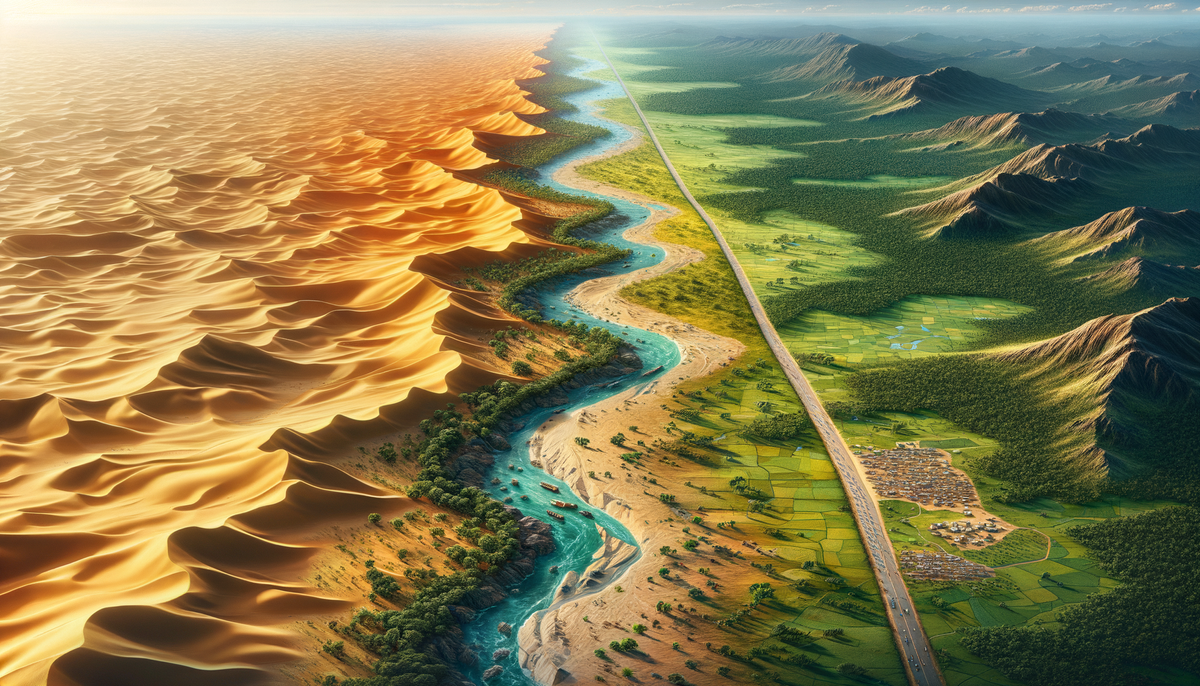Mauritania: The Pulse of West Africa's Geopolitical Landscape
Explore Mauritania's pivotal role in West African geopolitics and its challenging yet promising landscape, bridging North and Sub-Saharan Africa.

Mauritania is a compelling case study for geopolitics and economic developments at the intersection of North African and sub-Saharan cultures. With its strategic position on the Atlantic coast, it bridges varied regional influences that shape its political and social frameworks. The main query for this exploration into Mauritania is its current role and status in today’s rapidly shifting geopolitical landscape, much like recent events in other parts of Northern Africa, as highlighted by important military exercises and shifts in regional collaboration.
Mauritania: A Geopolitical Crossroads
The essence of Mauritania's strategic importance has been underscored recently in various developments across North Africa, including significant military exercises in Algeria that have broad implications for regional security (Yabiladi), and Libya's Ministry of Defense participating in Africa Peace initiatives (Libya Observer).
Mauritania, with its expansive deserts and richly diverse society, presents a unique blend of culture and historical legacy that positions it as a pivotal player in West African dynamics. Notably, the capital, Nouakchott, serves as a central hub of not only administrative functions but also as a focal point for understanding migration patterns that influence Europe’s socio-political fabric.
Geography and Strategic Importance
Covering over 1,030,700 square kilometers, Mauritania’s geography is primarily defined by its arid landscapes and scarce arable land, which informs its economic focus and socio-political challenges. It shares borders with Algeria, Mali, Senegal, and Western Sahara (Ynetnews), making it a linchpin in regional environmental and migration issues.
Nouakchott alone hosts approximately 500,000 migrants, highlighting its role in international migration as a transit location for those heading to Europe. This adds layers of complexity to its domestic policies and international relations, particularly its engagements with European security frameworks and humanitarian aid protocols.
Society, Culture, and Economic Challenges
Mauritania’s social fabric is woven from an intricate mix of ethnicities, with Bidhan Arabs constituting major demographics alongside Haratin and sub-Saharan African groups. Such diversity is mirrored in its official use of Arabic and recognized national languages including Fula, Soninke, and Wolof.
Despite its wealth in natural resources such as iron ore and copper, Mauritania remains economically challenged with high levels of poverty and pressing issues of food security, compounded by its limited arable land (about 0.5%). The Mauritanian economy is largely driven by agriculture, livestock, and fisheries, which are crucial yet vulnerable sectors susceptible to climatic variations.
The Human Rights Dimension
Mauritania has gained notoriety over its human rights record, particularly concerning modern slavery. As per reports, approximately 90,000 people live in slavery-like conditions, prompting international scrutiny and calls for reform. Moreover, the country's political scene, described by some as a military junta, continues to pose challenges in governance and international relations.
Political Landscape and Regional Influence
Under the current presidency of Mohamed Ould Cheikh El Ghazouani, Mauritania is focusing on anti-corruption, youth empowerment, and agricultural reforms as priorities for fostering stability. The political scene's dynamic nature poses both challenges and opportunities for strengthening Mauritania’s standing as a member of the Arab League and its role as a bridge between diverse African regions.
Conclusion: Challenges and Opportunities
For professionals engaged in Mauritania’s evolving landscape, understanding its geopolitical significance provides both challenges and opportunities. Enhancing economic resilience through sustainable practices and addressing human rights issues are critical for Mauritania’s development.
To leverage our expertise in navigating the complex dynamics of West African geopolitics, we encourage business leaders and Mauritania stakeholders to engage with our specialized consulting services designed to address these unique challenges. Explore the potential of Mauritania by partnering with us in strategic development initiatives. Contact us to learn more about how we can help you navigate the nuanced realities of this captivating region.




